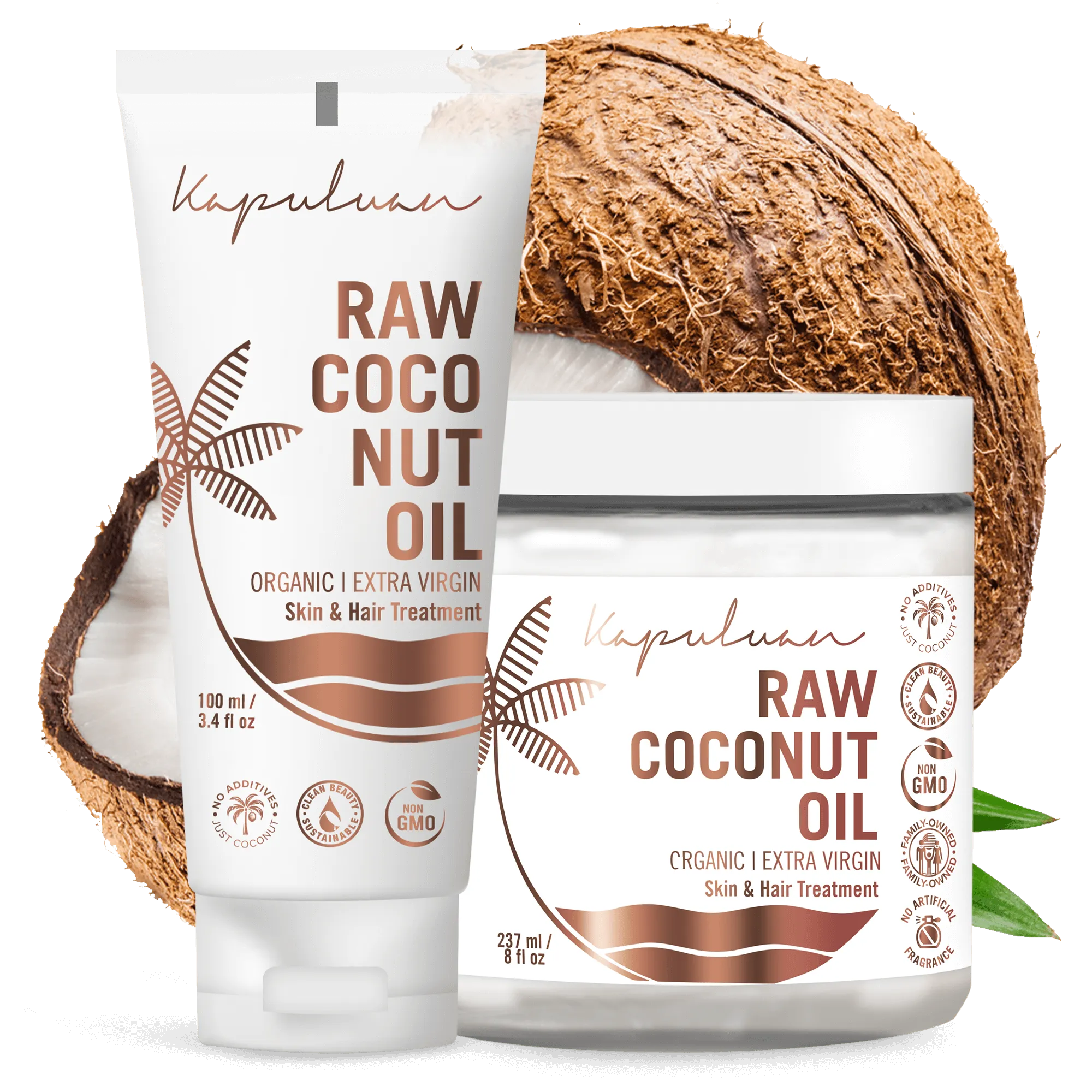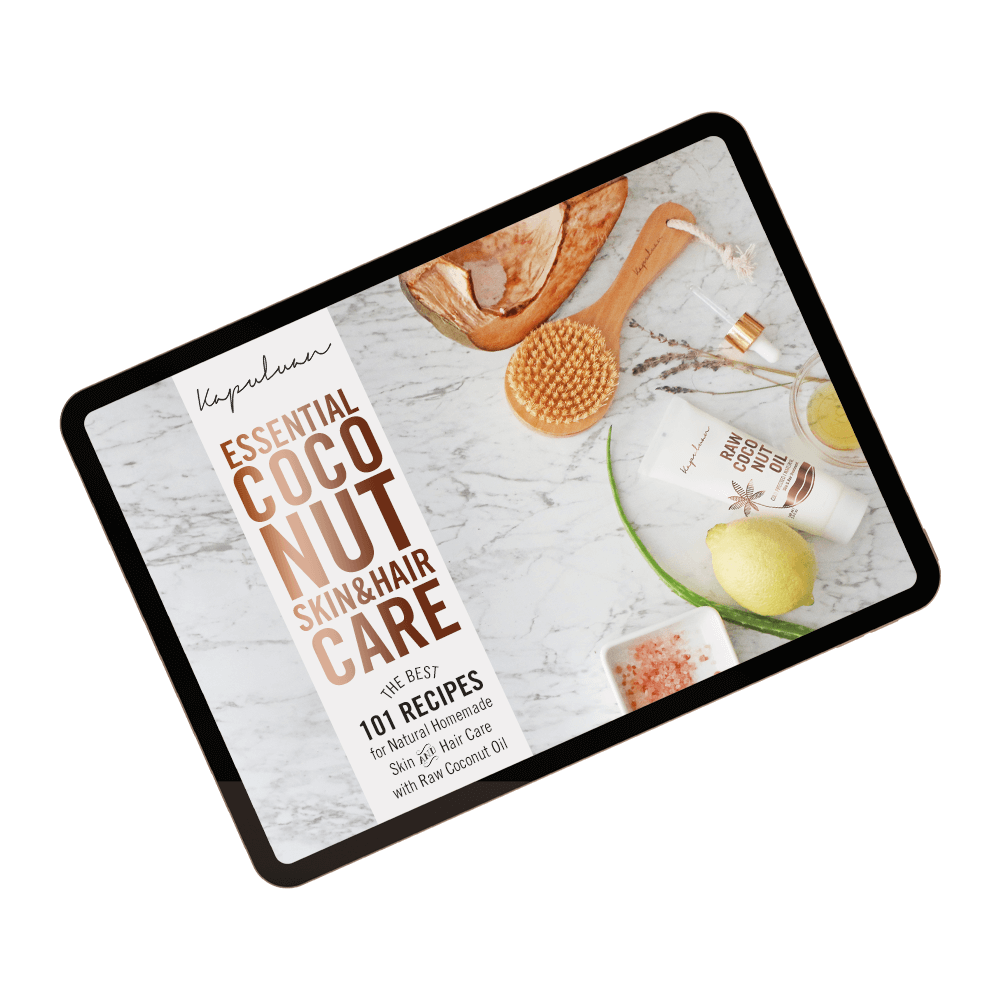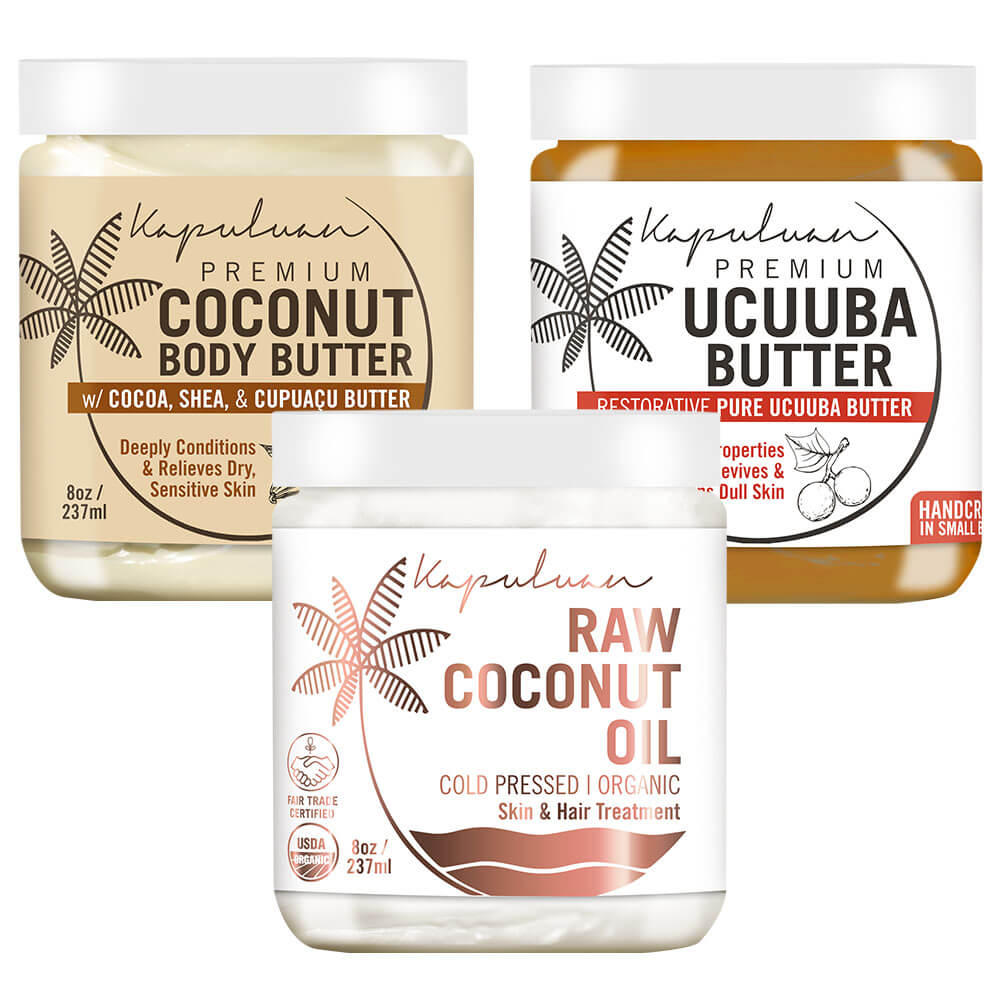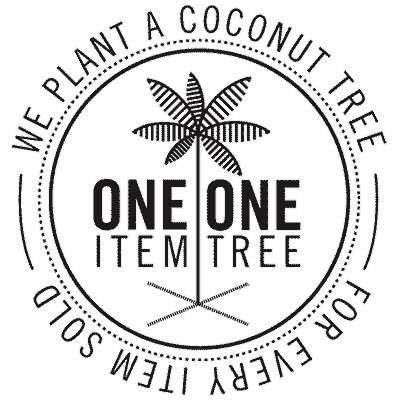Last Updated on June 26, 2024 by Kapuluan

We’ve all been on the hunt for that perfect skin moisturizer, the one that can hydrate and nourish our skin while also being natural. It’s time to stop searching because we’ve found a tropical treasure that checks all these boxes: coconut oil. Known as a ‘miracle oil,’ coconut oil is not just another trendy beauty fad; it’s an age-old remedy revered in many cultures for its wide range of health benefits.
Diving into the world of natural skincare, we’ll explore the power of nature embodied in coconut oil. From understanding its unique composition to learning how best to apply it for maximum benefits, we’ll offer you insight into this versatile product. We’ll touch upon its traditional use in tropical regions, compare it with other natural moisturizers and even shed light on potential side effects. Are you ready to liberate your skincare routine from harsh chemicals? Let’s journey together into the heart of nature’s bounty and discover what makes coconut oil such a potent skin moisturizer.
From Samoa’s oil extraction to Thailand’s milk production, from the Philippines’ use in cooking and cosmetics to India’s hair care rituals and Fiji’s traditional medicine practices — each method harnesses different aspects of coconut oil’s moisturizing properties, offering us a glimpse into how we could incorporate it into our skincare routines.
Now let’s circle back to our journey through tropical cultures with a newfound appreciation for their age-old wisdom. As we’ve seen, these regions have harnessed nature’s gifts effectively through sustainable harvesting methods and cultural practices embedded within their communities. Look beyond your regular supermarket aisle – you might find endless possibilities when you embrace what Mother Nature offers! Embracing natural alternatives like coconut oil nourishes our skin. It feeds our subconscious desire for freedom – from chemicals, artificial additives, and, most importantly, freedom to make choices that align with our values towards environmental sustainability.
Key Takeaways
- Coconut oil is a natural moisturizer rich in nutrients and antioxidants, making it a powerful solution for skin health.
- It has healing properties, antimicrobial and antifungal properties, and can soothe skin conditions like psoriasis and eczema.
- Coconut oil can be used topically and consumed to strengthen skin cells from within and give a healthy glow.
- Embracing coconut oil as a skincare ingredient provides natural self-care rooted in wellness and sustainability.
Understanding the Composition of the ‘Miracle Oil’
You’ve probably heard the old adage, ‘what goes around comes around,’ and it’s no different when understanding the composition of this ‘Miracle Oil,’ as what you put into your body is reflected in your skin. Unraveling the secrets behind coconut oil begins with its extraction methods. Two primary ways are used to extract oil from coconuts – the dry and wet processes. The dry process involves extracting oil from dried copra (the meat or kernel of a coconut) using high heat; this method yields less pure yet more flavorful oil. On the other hand, the wet process uses raw coconut rather than dried, employing cold pressure techniques to maintain purity while compromising some flavor. Diving deeper into its nutritional profile, we find that coconut oil mainly comprises saturated fats – specifically medium-chain triglycerides (MCTs). These MCTs have shorter chains than most other fats, which allows them to be easily digested by our bodies. This results in faster metabolism and energy production than long-chain fatty acids in many other oils. Moreover, within these MCTs lies lauric acid – a potent antimicrobial and antifungal agent that makes up nearly 50% of coconut oil’s total fat content! Besides this unique blend of healthy fats, coconut oil contains vitamin E – a powerful antioxidant that fights harmful free radicals and protects skin cells against aging. The magic doesn’t stop here, though! Coconut oil isn’t just nutritious on paper; it also has real-life skincare benefits. When applied topically as a moisturizer, it works wonders for parched skin by replenishing lost natural oils while locking in moisture due to its occlusive properties. Its anti-inflammatory qualities can soothe irritated skin conditions like psoriasis or eczema. At the same time, antimicrobial properties keep infections at bay- proving how nature equips us with everything we need for radiant health and freedom from artificial products laden with harsh chemicals!The Hydrating Properties of this Tropical Treasure
Drenching your body in the hydrating essence of this tropical treasure can not only rejuvenate your parched surfaces but also provide a much-needed oasis for your overall well-being. Coconut oil, derived from the meat or kernel of mature coconuts, is an all-natural, versatile moisturizer that’s been gaining popularity for its numerous health and beauty benefits. However, it’s essential to note that coconut oil’s efficacy and nutrient content largely depend on its extraction method. Cold-pressed virgin coconut oil retains more antioxidants and beneficial compounds than refined oils extracted using high heat or chemicals. It preserves rich fatty acids such as lauric acid and myristic acid, which are known to possess antimicrobial properties. As we delve deeper into this wonder product’s potential benefits, let’s discuss how coconut oil effectively locks in moisture. The secret lies within its structure; it comprises medium-chain triglycerides (MCTs), allowing it to penetrate deeply into skin layers rather than just sitting on top as many other oils do. This ability to permeate deeply equips it with superior moisturizing capabilities, boosting hydration levels while leaving no greasy residue behind. Now don’t forget about dietary impacts! Consuming coconut oil can offer internal support by strengthening skin cells from within – giving you a healthy glow that radiates outwards. Coconut oil truly stands out as a perfect example of nature flexing its power with aplomb. By understanding the science behind how this tropical treasure works wonders for our skin – be it through topical application or dietary consumption – we open ourselves up to new possibilities for natural self-care routines rooted in wellness and sustainability. So next time you’re looking at moisturizers, consider reaching for a jar of pure, unrefined coconut oil instead: nature’s antidote for dryness and dehydration!Antioxidants: A Key Component
Ever wondered about the secret behind that youthful glow? It’s all about antioxidants, your body’s ultimate defense against aging. This is where coconut oil comes to your rescue. Rich in antioxidants, it helps combat oxidative stress caused by free radicals, which are responsible for premature skin aging and other skin concerns. The power of nature is truly remarkable, isn’t it? Coconut oil isn’t just a moisturizer; it’s an antioxidant powerhouse. Here are some key points:- Antioxidant Sources: Coconut oil contains phenolic compounds known for their strong antioxidant activities.
- Ferulic acid: This is a potent antioxidant found in coconut oil that can neutralize free radicals and reduce inflammation.
- P-coumaric acid: Another beneficial compound with impressive antioxidant properties.
- Oxidative Stress: Antioxidants in coconut oil help combat this harmful effect.
- Fights Free Radicals: By reducing oxidative stress, they prevent damage to your skin cells and maintain their health and vitality.
- Promotes Skin Health: Aside from combating aging signs like fine lines and wrinkles, these antioxidants also aid in repairing damaged skin.
Traditional Use in Tropical Regions
Let’s take a trip to the tropical regions of the world, where locals have been reaping the benefits of this magical concoction for centuries. The power of coconut oil as a skin moisturizer is no secret here; it has been deeply ingrained in their cultural practices. Harvesting methods are traditional and unique to each region, but they all share an understanding and respect for nature’s bounty. In these tropical paradises, coconut trees thrive in abundance, and every part of the tree is utilized. The coconuts are harvested manually using long poles or by climbing trees – practices that connect them to their environment while maintaining sustainability. Let’s look at the table below, which illustrates some common uses of coconut in various tropical regions:| Region | Use of Coconut | Skin Benefits |
|---|---|---|
| Samoa | Oil Extraction | Moisturizing |
| Thailand | Milk Production | Softening |
| Philippines | Cooking & Cosmetics | Nourishing & Hydrating |
| India | Hair Care & Massage | Conditioning & Relaxation |
| Fiji | Traditional Medicine | Healing |
How to Apply it for Maximum Benefits
So, you’re curious about maximizing this tropical treasure’s benefits, huh? It’s not as complicated as you might think, and what’s more, you’ll feel a deep sense of satisfaction knowing that your skincare routine is in harmony with tradition and sustainability. The secret lies in the application techniques and oil quantity used. We’re about to walk you through it all. Firstly, ensure your skin is clean before applying coconut oil; this allows for maximum absorption. A small amount goes a long way – usually, just a teaspoon for the entire face is enough. Remember that everyone’s skin is different; what works wonders for one person may be too much or too little for another. So don’t be afraid to tweak the oil quantity until it suits your skin type perfectly. Warm up the coconut oil by rubbing it between your fingers before applying it gently on your face using upward circular motions. This technique stimulates blood circulation and ensures an even oil distribution across all areas. The best time to apply coconut oil as a moisturizer is right before bed; allow nature’s potent potion to work its magic while you sleep! Adding this product into your evening routine can create an environment where freedom meets self-care and tradition embraces modernity. Embrace this journey towards rejuvenating your skin with coconut oil – remember, consistency is key here! And soon enough, you’ll wake up each morning with deeply nourished and radiant skin that echoes stories of age-old wisdom from tropical regions and tales of personal liberation through natural means of self-care.Potential Side Effects and Precautions
Despite its many benefits, it’s crucial to remember that even paradise has its pitfalls; mishandling this tropical treasure can lead to unwanted repercussions. We’re talking about coconut oil as a skin moisturizer here. Although touted as a miracle worker for various skin issues, it may not be everyone’s cup of tea due to potential allergic reactions and sensitivity issues. Individuals with a known allergy to coconuts should steer clear of coconut oil entirely. Sensitivity issues may also arise in some people who don’t typically have allergies but may experience irritation or breakouts when using coconut oil products on their skin. Diving deeper into the realm of skincare, we understand that everyone’s skin is unique and reacts differently to different products. For instance, while some people may find coconut oil incredibly hydrating and beneficial for dry patches, others might find it too heavy and comedogenic (pore-clogging), leading to increased acne or blackheads, especially if they have oily or acne-prone skin types. A patch test is always recommended before integrating any new product into your routine – apply a small amount on your inner elbow or wrist area and wait 24 hours to see if any adverse reaction occurs. Navigating the world of natural skincare isn’t always smooth sailing – one must be aware of their individual needs and potential challenges along the way. Though allergic reactions are relatively rare, sensitivity issues can crop up unexpectedly, especially with potent natural substances like coconut oil. But let’s not forget – understanding these nuances allows us to harness nature’s power more effectively without compromising our skin health! So continue exploring with curiosity while being mindful of your body’s unique needs – after all, true freedom lies in knowledge and understanding ourselves better!Comparing with Other Natural Moisturizers
When it comes to natural moisturizers, a whole world beyond coconut oil also deserves our attention. While the benefits of coconut oil are undeniable, let’s turn our gaze toward other potent options and see how they fare. Each has unique charm and characteristics, from their oil extraction methods to sustainability concerns.- Shea Butter: Extracted from the nuts of the Shea tree, this rich butter offers extraordinary moisturizing properties without clogging pores. Unlike some extraction processes that use heat or chemicals, shea butter is usually cold pressed – a method preserving more nutrients.
- Jojoba Oil: This golden liquid is derived from the seeds of the Jojoba plant and mimics our skin’s natural oils – making it an excellent moisturizer for all skin types. The sustainability concern here is low since Jojoba plants are drought-resistant and require less water than many crops.
- Argan Oil: Harvested from kernels inside the fruit borne by Morocco’s native Argan Trees, this oil boasts high levels of Vitamin E and fatty acids ideal for hydrating skin. However, there can be sustainability concerns with argan oil production due to global demand and overharvesting issues.
- Olive Oil: A household name in cooking but also a wonderful skin moisturizer packed with antioxidants. Olive trees are long-lived species reducing environmental impact; however, careful attention must be given to production methods to ensure minimal waste during extraction.





